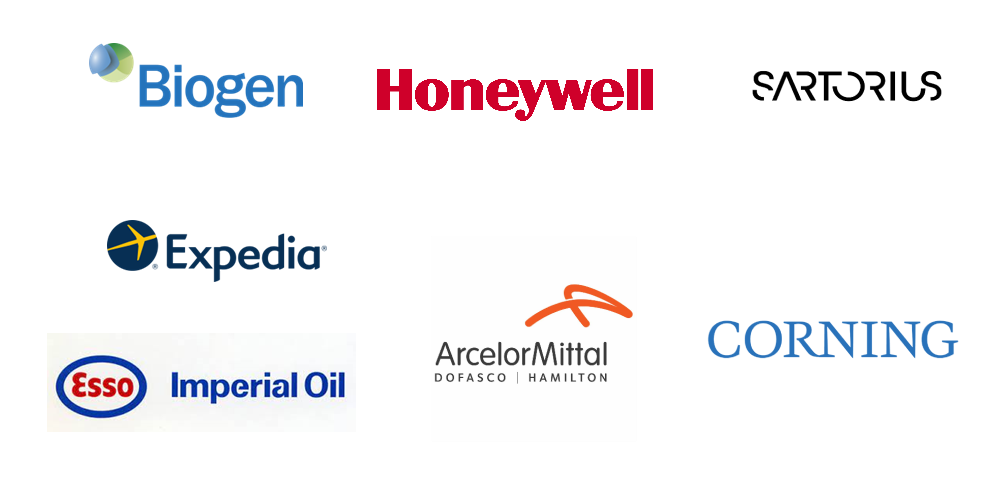



The McMaster Advanced Control Consortium (MACC) was established in 1988 to promote and advance process automation and related process systems engineering technologies through academe-industry interactions. Over the years, company membership grew and also diversified, with current member companies spanning the petroleum, chemical, steel, food and control technology vendor industries. The research in the consortium is directed by five faculty members from the Department of Chemical Engineering at McMaster University, with the remaining research complement comprising of graduate students, research engineers, post-doctoral fellows at various points in time, and undergraduate research students.
MACC continues to thrive after more than 30 years, and has provided significant benefits to both McMaster University and member companies. Numerous graduate students with Ph.D. and Master's degrees who graduated from here have high technical skills that are developed through their course work at McMaster University combined with industrially relevant research. They are highly sought-after and are valuable assets to the process industries and their technology suppliers.
MACC researcher offices are located in the John Hodgins Engineering Building (JHE) at McMaster University as part of the Department of Chemical Engineering.
Process plants have to operate in an increasingly dynamic and uncertain environment due to increased globalization, market volatility, environmental constraints, and deregulation of energy markets. The rapid growth in digitalization offers opportunities for responsive operation through intelligent, data-driven decision-making. MACC has been a pioneer in (and is also at the forefront of) predictive analytics, advanced control, sustainable design for energy conversion and real-time optimization, and is continuing their development and deployment in collaboration with our industrial partners. Our research is therefore broadly divided into four themes.
The Department of Chemical Engineering and MACC attract graduate students from top universities throughout the world. Most students admitted into the full-time M.A.Sc. and Ph.D. programs receive an offer of funding in the form of a Teaching Assistantship and a scholarship. Graduate students within MACC have a number of leading edge graduate courses to choose from. These include courses offered by MACC faculty as well as courses in other departments. Our Masters and Ph.D. graduates find employment in diverse areas.
Graduate students have the opportunity to interact with member companies through collaborative research projects and the annual MACC Meeting and Workshop. The strong background that our graduate students develop through their graduate courses and industrially relevant research make them sought after by companies across a wide range of industries.
Our graduate students attend the annual Ontario-Quebec Statistics and Control Meeting. The conference is an ideal forum for research discussions, and meeting graduate students and faculty from other institutions. The conference is hosted by a different university each year, with past locations including Montreal, Ottawa, Quebec City, Waterloo, Kingston and Hamilton. Graduate students also have the opportunity at presenting their research at international conferences. The interactions within the MACC group, with member companies and related research groups makes for a uniquely stimulating and enriching environment.
Please note that the this list may not be exhaustive.
Alumni: please contact us to keep this list up to date.
The MACC facilitates two-way exchanges between academic and industrial members. This takes several forms, primarily through an annual MACC Meeting and Workshop, and collaborative research in which member companies are directly involved through problem formulation, providing data, mentoring students, and field testing concepts. The partnership results in significant benefits to both industry and the university.
MACC addresses automation technology that has wide application within any manufacturing company and across industries. Consequently, MACC member companies span a wide spectrum of industrial sectors, with several benefits available for members.

Dr. Thomas Adams has been selected by the AIChE Computing and Systems Technology (CAST) Division as the 2021 recipient of the CAST David Himmelblau Award for Innovations in Computer-Based Chemical Engineering Education. The award is given in recognition of Tom's many contributions to chemical engineering education, including his work in developing courses and computer-aided chemical engineering tools, writing the book Learn Aspen Plus in 24 Hours, and creating the website PSEcommunity.org which hosts LAPSE: the Living Archive for Process Systems Engineering.
MACC was included in a major benchmark study performed by Dr. Irene Petrick of Penn. State University for the U.S. National Institute of Standards and Technology in 2006. Although the other consortia included in the study received much greater funding, MACC was highlighted as extremely successful, especially in impact to the member companies via technology transfer. MACC also scored high on key indicators of consortium success, such as well-defined vision, genuine target, agreed agenda, knowledge sharing and a unique university alternative view.
Dr. Chris Swartz has received the Canadian Society for Chemical Engineering's D.G. Fisher Award, which is given to one person each year in recognition of "major contributions in the field of systems and control engineering". Congratulations Chris!
For this award, Chris was invited to deliver a keynote lecture at the 69th Canadian Chemical Engineering Conference in Halifax on October 21st. He spoke about optimization of uncertain dynamic systems with application to process operation and design. The award was subsequently presented to Chris by Dr. Thomas Adams, Chair of the CSChE's Systems and Control Division.
The MACC has been awarded a major provincial grant through the Ontario Research Fund: Research Excellence (ORF-RE) program, to help support its cutting-edge research over the next five years. Led by Dr. Chris Swartz, and with all MACC faculty members and several member companies participating, the funded project is titled "Enhancing competitiveness of industrial process operations through responsive, flexible and cleaner production".
Building on the MACC's track record of success with solving industrially relevant problems, the initiative will involve pioneering research in agile industrial operation, optimization-based decision support methods, and design of integrated energy systems, with the goal of maintaining industrial competitiveness amid increasing variability in product demand, supply availability, and utility costs.